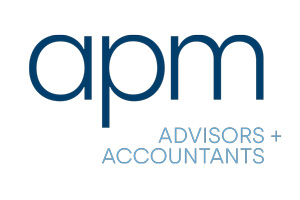Will 2024-25 be another year of volatility or a return to stability?
Personal tax & super
As you would be aware (at least we hope so after a $40m public education campaign), the personal income tax cuts came into effect on 1 July 2024. At the same time, the superannuation guarantee (SG) rate increased by 0.5% to 11.5%.
For employers, it’s critically important to ensure that your payroll system, and all interactions with it, like salary sacrifice agreements, are assessed and updated. Your PAYG withholding will also be impacted.
While we are on the topic of obligations, the ATO have recently warned employers to be vigilant about their super guarantee obligations:
Are you paying super guarantee to the right people? The definition of an employee for SG purposes is broad and, in some cases, extends beyond typical classifications. Temporary residents, backpackers, and some company directors working in the business, family members working in the business, and some contractors must be paid SG. Check your classifications are correct for SG purposes.
Check the fund details are correct for the employee and the employee’s tax file number has been provided to the super fund. It’s the employer’s obligation to ensure that SG for the employee is directed to the correct super fund account.
Ensure SG is paid into the employee’s fund by the quarterly due date (next SG payments are due by 28 July). If your business misses the deadline, the super guarantee charge applies (even if you pay the outstanding amount quickly after the deadline). The SG charge (SGC) is particularly painful for employers because it is comprised of the outstanding SG, 10% interest p.a. from the start of the quarter, and an administration fee. And, unlike normal SG contributions, SGC amounts are not deductible.
Wages
On 1 July 2024, the national minimum wage increased by 3.75% ($24.10 per hour, or $915.90 per week). The increase applies from the first full pay period starting on or after 1 July 2024. Traditionally, there is no correlation between an increase in minimum wages and inflation.
Annual wage growth in the private sector fell slightly to 4.1% in the March quarter 2024 from 4.2% in December 2023 – the first fall since September quarter 2020, suggesting that wages growth is starting to even out.
Interest rates and cost of living
Reserve Bank of Australia (RBA) Governor Michelle Bullock has stated on several occasions that inflation, not interest rates, are at the heart of cost of living pressures. Interest rates are the RBA’s “blunt instrument” to bring inflation under control. With inflation easing more slowly than anticipated, the RBA is not ruling anything out because the path of interest rates is determined by the actions required to bring inflation to target.
Inflation has reduced from its peak of 7.8% in December 2022 to 3.6% in the March quarter, but increased again in May to 4% dampening expectations of an interest rate reprieve.
Business confidence
The latest NAB business survey is not happy reading with business confidence falling back into negative territory in May as conditions continued to gradually soften. Having experienced eight consecutive months of forward order declines, businesses are understandably circumspect over the outlook. GDP grew marginally in the March quarter and consumption per capita continued to decline.
However, labour market conditions are strong with unemployment at 4% for May.
Treasury forecasts that economic growth (GDP) will marginally improve to 2% in 2024-25. Not exciting but credible.
What now?
Businesses fail (or fail to thrive) for a myriad of reasons, but the precursor is often a failure to understand what is occurring within the business and what to monitor. Strategically, managers need to be on top of their numbers to identify and manage problems before they get out of hand. If you do not know what the key drivers of your business are, then it’s time to find out (we can help you with that).
A lack of profit will erode your business, but not enough cash will kill it stone dead. Businesses often fail because they don’t manage their cash position. Plan, track, and measure your cashflow. This not only means closely monitoring your debtor collections and inventory but also running a rolling three month cashflow position. This should provide an early warning of any brewing problems.
Cash flows, operating budgets, cost control and debt management all need to be part of your business management. The more in control you are the lower your risk position.
Many small businesses also tend to absorb increasing costs. Putting up your prices during difficult times is not an act of social betrayal. If the cost of doing business has increased, you should flow these through unless you are comfortable making less for the same amount of effort, or you are in an industry that is so price sensitive you have no choice but to follow the lead of larger businesses.








